

The English Apple Man reflects on the past and projects the future
My Journals have identified the real concern of the future of British apple growers over the last two seasons!
Negative price pressure by Supermarkets and the impact of war in Ukraine, resulting in high inflation has brought the industry to its knees.
Over the top protocol requirements, with individual Supermarkets aligning themselves with different protocols, requiring multiple audit/certification visits.
On social media, many growers have illustrated the desperate situation facing UK apple growers. It should be said that other sectors are also facing inflation v poor returns, and some have taken action by not planting certain salads etc. when high energy costs have made production unsustainable. Soft fruit growers have also cut back on production; 'with a wait and see policy' Top Fruit Growers (apples and pears) however cannot take short term positions and once the trees are grubbed, its very unlikely the land wil ever return to fruit growing!
The FUTURE - The English Apple Man's prognosis - A smaller British apple industry, but higher value products - Club Varieties!!
Much has been said about the imbalance of power between suppliers and retailers!
Stagnant returns are leading to a major pullback on orchard investments, a widescale new survey has indicated.
A British Grower Association survey of British Apples & Pears Limited (BAPL) members, conducted in late 2022, found that planting of 150,000 new apple and pear trees has been cancelled this season.
Growers had intended to plant as many as 480,000 new trees to invest in the long-term future of their orchards, but a third of those orders have now been cancelled, according to the survey of growers who together represent an estimated 80% of the British topfruit sector.
"This is the clearest indication yet that the future of apple and pear growing in the UK is seriously in doubt," said BAPL executive chair Ali Capper. "The industry is on a knife edge. Without long-term investment and new tree planting, orchards will quickly go into decline. That's not something any of us wants, least of all the British consumer."
The key reason for the lack of investment is supermarket returns that are unsustainable," Capper continued. "Increased input costs of around 23%, for example for picking, energy, haulage and packaging, are being met with almost static average fruit prices paid by retailers."
BAPL growers reported receiving an average 0.8% year-on-year increase in what supermarkets pay them for their fruit, despite an independent report by John Pelham from Andersons Consulting recommending that growers should receive a minimum 12% increase in returns (10.2p/pack on a Gala apple six pack).
"Losing British orchards is not just an issue for our growers and UK food security," added Capper. "We're going to lose huge biodiversity in our countryside too. Apple and pear orchards are a sustainability success story - 83% of our growers work with local beekeepers, 62% have wildflower leys on headlands and 89% have grass orchard margins that are not cut or travelled."
A former Asda buying chief has turned from poacher to gamekeeper to offer suppliers training in the Groceries Supply Code of Practice.
 Ged Futter, who worked for nearly 15 years with the supermarket giant, the last four as senior buying manager for frozen food, told The Grocer he wanted to help bring "balance" back to the relationship between suppliers and retailers.
Ged Futter, who worked for nearly 15 years with the supermarket giant, the last four as senior buying manager for frozen food, told The Grocer he wanted to help bring "balance" back to the relationship between suppliers and retailers.
Supermarkets were turning their superior negotiation skills into a "billion pound industry", Futter warned, adding many suppliers were too scared to stand up to retailers because there was still a "climate of fear"
To help suppliers be more assertive, Futter is offering to train them up through his new business, Innovative Retailing Solutions, which he launched in February.
GSCOP training is designed to help suppliers understand their rights, protect their business, and grow. The training is crucial because without it, suppliers might not be aware of what they don't know!
Comment from a leading UK apple grower
 "Departments within retailers responsible for creating these additional audits are growing like a cancer, feeding off and demanding resources to grow themselves larger and more influential, a whole parasitic support industry has been spawned which creates absolutely nothing of value, needless bureaucratic box ticking exercises.
"Departments within retailers responsible for creating these additional audits are growing like a cancer, feeding off and demanding resources to grow themselves larger and more influential, a whole parasitic support industry has been spawned which creates absolutely nothing of value, needless bureaucratic box ticking exercises.
Most of the UK workforce now seems to be employed in jobs which consume wealth created by others, crippling competitiveness across the globe. I, like many others, now spend a disproportionate amount of time demonstrating that I comply with with is, in many many cases, already the law of the land, rather than the business of actually growing a crop.
What happened to innocent until proven guilty? I have a question, while we're on the subject of Ethical Trading, heave you ever thought what effect your dubious business practices have on the mental health of your suppliers?
Answers on a post card, please!!!!!!!!!!!
Below: An observation from a consumer relating to the item on Countryfile showing apple trees being grubbed by a desperate grower
Dear Richard,
"I am watching the item on Countryfile right now and am horrified that you are treated so badly by supermarkets. For example, I couldn't believe my ears that Bramley's the best apple for baking ever, are having to be juiced because some eejit in, say, Tesco is deciding the consumer, me, doesn't want small ones, odd sized ones etc. Also that they are then not paying you a decent price. I am also becoming concerned about imports and why I don't see the varieties of pears and apples, I know are grown here, in the shops.
I am sure that I cannot be the only consumer that is sick of being told that I don't want this, that and the other by retailers who didn't even ask me. I wondered if you would be willing to correspond further on this with an end user like me so that I can learn what more I can do to support British fruit and veg. farmers, e.g. buying directly for example.
Kind Regards - Sue - from Manchester
The English Apple Man - THE FUTURE as I see it!
Without a sustainable financial return for the grower, orchards WILL be GRUBBED!
The main varieties (by tonnage) Gala and Braeburn, especially Gala will be affected. Braeburn does outyield Gala and stores very well long term in DCA stores.
The trail blazer for Club varieties has been PINK LADY with global success returning the best prices to the grower apples with the required time on the tree, as it is was the first variety to blossom and the last to be harvested.
Pink Lady is the world's first apple brand and the UK's number one fresh produce brand, with sales of more than 74 million kilos in 2020.
See Coregeo -Pink Lady.
Already the process of growing higher value crops is gaining momentum; Adrian Scripps Ltd (always on trend) has been steadily changing from a high dependency on Gala to Club apple varieties JAZZ and PINK LADY, while planting significant areas of GRAPES.
Below: left - right. Pink Lady - Jazz - Kissabel - Envy
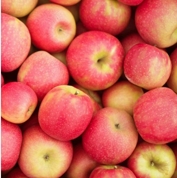
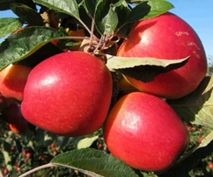
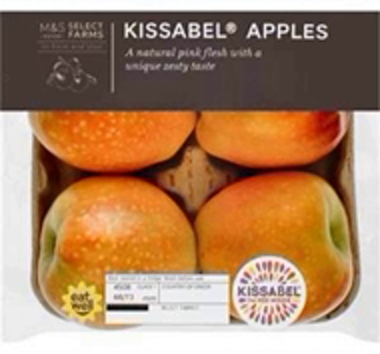
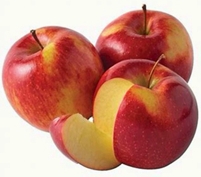
 Worldwide Fruit Ltd. The company that launched JAZZ in the UK circa 25 years ago and was awarded a licence to grow and market PINK LADY now market KISSABEL which is rapidly gaining favour on a Global basis. WFL also grow and market SMTTEN and ENVY and ROCKIT all Club Varieties.
Worldwide Fruit Ltd. The company that launched JAZZ in the UK circa 25 years ago and was awarded a licence to grow and market PINK LADY now market KISSABEL which is rapidly gaining favour on a Global basis. WFL also grow and market SMTTEN and ENVY and ROCKIT all Club Varieties.
Below: the three Kissabel varieties and right. SMITTEN
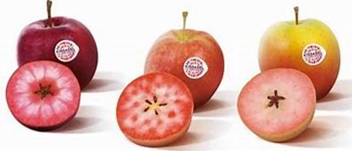
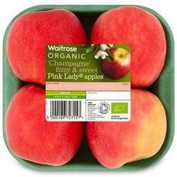
Kissabel
"The harvest exceeded expectations in the UK, the first country to start production of all three Kissabel apple types. "It's been an excellent growing season so far," comments Hannah McIlfatrick, sales manager at World Wide Fruit. "Skin finish looks very good and the fruit size profile is looking much better for UK markets than last year".
The English Apple Man Comments.
So, unless Supermarkets have a change of heart, I believe any variety not earning a profit will be rapidly grubbed, that will include some of the more obscure/precious one's like Cox, Worcester Pearmain, Egremont Russet, et al.
The Club varieties, grown under licence with production limited to 'match NOT exceed demand' are the leaders in delivering a sustainable future to the grower. Globally there are circa sixty new varieties at various stages of development all vying for a profitable future!
The prospect for the future will see less home grown Gala and Braeburn, more cheap imports (while they last) and traditional British varieties depending on small growers with Farm Shop outlets and/or selling in local Farmers Markets.
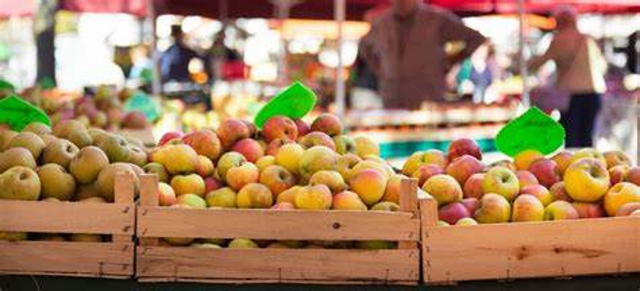
![]() That is all for this YEAR
That is all for this YEAR
Happy New Year 2024 
The English Apple Man